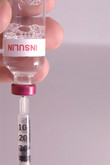Biosimilars
Samsung Bioepis and AffaMed to start trastuzumab trial in China
China’s National Medical Products Administration (NMPA), formerly the China Food and Drug Administration (CFDA) has granted approval for partners Samsung Bioepis and AffaMed Therapeutics (AffaMed) to start a phase III trial for their trastuzumab product, SB3.
Biocad announces positive rituximab results and plans to enter EU market
Russian biotechnology company Biocad has announced plans to enter the European market and has published positive results for its rituximab non-originator biological Acellbia (BCD-020).
Positive trial results for Lannett’s insulin biosimilar
US firm Lannett has completed a successful trial of their candidate insulin biosimilar, which was compared to Sanofi’s blockbuster insulin product Lantus.
NeuClone progress with ustekinumab and trastuzumab biosimilars
Australian biosimilars firm NeuClone has started a phase I trial of their proposed ustekinumab biosimilar and announced positive results from a trial of their trastuzumab biosimilar.
Non-originator biologicals approved in Russia
Last update: 10 January 2020
In Russia, the regulatory body for the approval of medicines is Russia’s Ministry of Health (Министерство здравоохранения Российской Федерации; Rosminzdrav, Minzdrav).
Analytical similarity assessment of teriparatide biosimilar Terrosa
Terrosa and Movymia (both developed under the code name RGB-10), were the first biosimilars of Eli Lilly’s osteoporosis biological Forteo/Forsteo (teriparatide) in Europe. Gedeon Richter and Stada Arzneimittel gained European Commission approval for Terrosa and Movymia in January 2017 [1] and launched the biosimilars in August 2019 [2]. Meanwhile, RGB-10 was also approved in other countries, including Switzerland and Japan.
FDA approval for Amgen’s infliximab biosimilar Avsola
US-based biotech giant Amgen announced on 6 December 2019 that it had received approval from the US Food and Drug Administration (FDA) for its infliximab biosimilar Avsola (ABP 710).
Canadian gastroenterologists issue biosimilar position statement
The Canadian Association of Gastroenterology (CAG) and Crohn’s and Colitis Canada announced on 24 October 2019 that they had issued a joint position statement on the use of biosimilars for the treatment of inflammatory bowel disease (IBD) [1].
Bio-Thera gains Chinese approval for adalimumab copy biological and starts ustekinumab trial
China’s National Medical Products Administration (NMPA), formerly the China Food and Drug Administration (CFDA) has approved Qletli, an adalimumab copy biological. The NMPA has also approved the Investigational New Drug (IND) application from Bio-Thera Solutions (Bio-Thera) to initiate a phase I clinical study for the proposed ustekinumab copy biological BAT2206.
Pharmacists must be ready to take the lead on biosimilars
Pharmacists should take the lead in increasing the adoption of biosimilars in clinical practice, says a review of the implications of biosimilars for pharmacy practice. The review suggests that pharmacists in all settings can take a key role in advocating for biosimilars [1].













